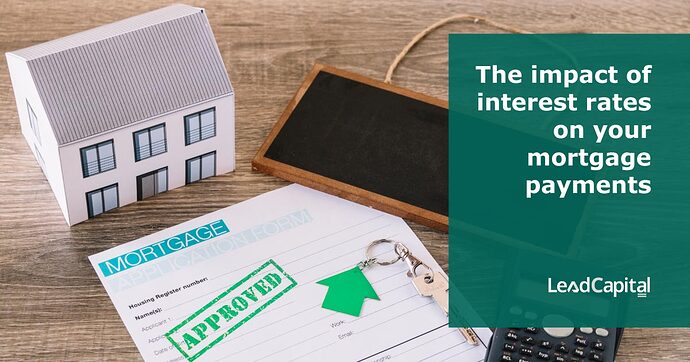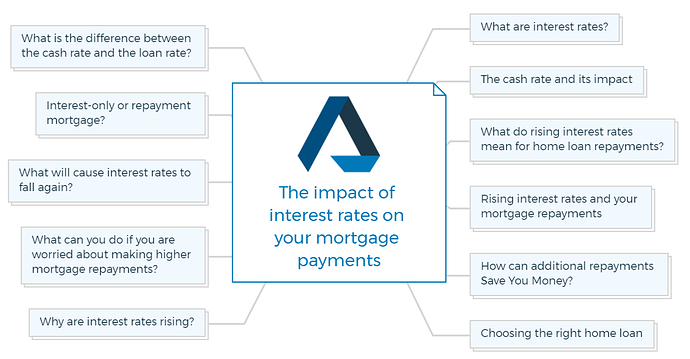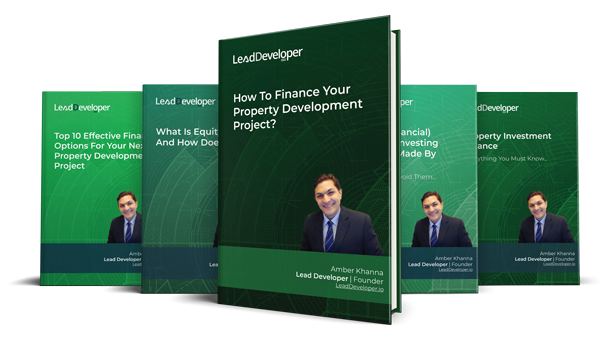The real impact of interest rates on your mortgage payments
If you’re thinking of buying a home, you’re likely to be taking out a home loan or mortgage.
Interest rates and mortgage payments are correlated; it is crucial to consider both of them when evaluating the financial implications of a mortgage.
What are interest rates?
The interest rate is the price paid to borrow money. Interest is added to the loan balance whenever money is borrowed, including for a mortgage or a home loan.
This interest is often applied to your mortgage payments as a percentage of the loan balance.
You are missing out if you haven’t yet subscribed to our YouTube channel.
The cash rate and its impact
The cash rate is the interest rate that the central bank sets. When the cash rate is low, house loan interest rates are often cheaper, making it an excellent time to finance a property purchase.
However, interest rates tend to rise along with the high cash rate.
What do rising interest rates mean for home loan repayments?
Rising interest rates mean that your mortgage repayments are likely to increase, which could affect your ability to make your monthly repayments. This is because higher interest rates result in higher monthly mortgage payments.
Rising interest rates and your mortgage repayments
Your monthly mortgage payment might go up if interest rates go up. Plan and make sure you can afford the additional payments.
During the fixed term of a house loan, your payments will remain constant regardless of market fluctuations. However, once the fixed term expires, you may be exposed to rate increases.
Learn More
How can additional repayments Save You Money?
If you have a house loan with a variable interest rate, you may save money while rates are low by paying extra towards the principal. In the long term, this can help you save money by reducing the length of your mortgage loan.
There may be caps on how much of your mortgage you may pay down each year without being hit with prepayment penalties if your loan has a fixed interest rate.
Choosing the right home loan
When choosing a home loan or mortgage, consider the interest rate, total cost, loan duration, and loan amount before making a home loan decision.
Consider your financial flexibility and your preferred payback schedule when choosing between a fixed and variable-rate mortgage.
Why are interest rates rising?
Growing economies, rising prices, and changes in monetary policy all contribute to an increase in interest rates.
Increases in interest rates are commonplace during economic expansions and periods of low unemployment. The central bank takes such measures to avoid inflation by keeping the economy from overheating.
What to do if interest rates rise
Changing to a mortgage with a lower interest rate might help you save money if rates increase. Another option is to negotiate a lower interest rate with your present lender.
As an alternative to making larger mortgage payments, you may place your money in a high-interest savings account.
What can you do if you are worried about making higher mortgage repayments?
A few options are available to you if you’re concerned about increasing your mortgage payments. You may save money on your mortgage by refinancing to a new loan with a different interest rate.
You can save money on interest and pay off your mortgage faster if you make additional payments on your loan and use a mortgage offset account or savings account.
How To Finance Your Property Development Project?
And Other Books On Real Estate Development Finance
Includes 5 x detailed eBooks
✓ Property Development Finance: Easily Finance Your Project? (26 Pages)
✓ 10 Big (Financial) Property Investing Mistakes Made By Investors (58 Pages)
✓ 10 Finance Options For Your Next Property Development Project (29 Pages)
✓ What Is Equity Finance And How Does It Work? (42 Pages)
✓ Property Investment Finance - Ultimate Guide
What will cause interest rates to fall again?
If economic growth slows, inflation slows, or the central bank decides to follow a monetary strategy that lowers interest rates, then interest rates will fall again.
Interest rates can go up or down depending on the global economy and political climate.
Fixed-rate vs. variable rate: Which is a better home loan?
There are benefits and drawbacks to both fixed- and variable-rate mortgages.
The ability to predict and plan for monthly mortgage payments is a major benefit of a fixed-rate mortgage arrangement. However, you risk missing out on future rate reductions.
With a variable-rate mortgage, your monthly payments are flexible, but you may save money if interest rates drop.
Interest-only or repayment mortgage?
In a repayment mortgage, you pay both the interest and the principal throughout the life of the loan, whereas in an interest-only mortgage, you pay just the interest.
Since you still have to pay off the original loan balance once the interest-only period ends, this type of mortgage often costs more over time.
The interest on a repayment mortgage is often lower, and after the loan’s term, you’ll be the home’s sole owner.
What is the difference between the cash rate and the loan rate?
The cash rate is the interest rate set by the central bank, while the loan rate is the interest rate charged by banks and other lenders for borrowing money.
The cash rate usually influences the loan rate, but other factors can also affect it, such as competition between lenders and the state of the economy.
In conclusion, interest rates can have a big impact on your mortgage repayments. You may save money and shorten the term of your mortgage if you familiarise yourself with the process, select the appropriate house loan, and make extra payments whenever possible.





